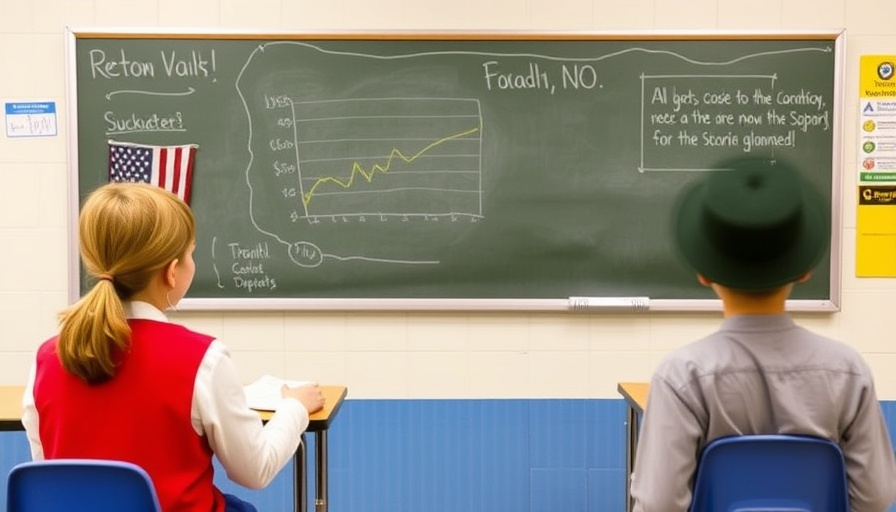
Texas Teachers Set for Pay Raises Amid Legislative Milestone
In an unprecedented move aimed at mitigating teacher shortages and enhancing educational outcomes, the Texas Legislature has advanced House Bill 2, an ambitious plan that allocates $8.5 billion in funding, largely geared towards increasing teacher salaries. The bill, which is soon to be signed into law by Governor Greg Abbott, is anticipated to positively impact thousands of teachers in North Texas starting in the 2026 school year.
A Closer Look at the Funding Breakdown
Nearly 50% of this monumental funding, amounting to approximately $4.2 billion, is specifically designated for teacher pay raises. Educators with a minimum of three years of experience in larger school districts such as Dallas, Fort Worth, Frisco, and Plano are set to receive an impressive $2,500 raise, while those boasting five or more years of classroom experience will enjoy a raise of $5,000. The situation is even more favorable for teachers in smaller districts, where the raises could reach nearly double this amount, showcasing a significant investment in the future of education in Texas.
Support and Concerns: A Community Divided
This funding package reflects a growing consensus among education advocates and business leaders, who assert that improved funding is essential for addressing historical shortcomings in the education system. “It’s not simply a matter of how much money to infuse into our schools; the critical question lies in how these funds will be spent and the measurable outcomes we can expect,” remarked Kate Greer from Commit Partnership during a recent summit.
Despite the bill's positive reception, it faced a significant amount of negotiation and debate informed by the concurrent discussion around school choice measures. These proposed changes have attracted mixed opinions from stakeholders across the educational spectrum, leading to a multifaceted narrative surrounding the bill's passage.
Economic Repercussions and Future Implications
The ramifications of House Bill 2 extend beyond immediate pay raises. By incentivizing educators to remain in Texas schools, the bill seeks to strengthen the educational foundation crucial for the state's burgeoning economy. “Under-education of our young adults represents significant limitations on our business community,” warned Jarrad Toussant of the Dallas Regional Chamber, hinting at the interconnectedness between education and economic vitality.
Broader Reforms on the Horizon
As Texas moves forward with this new legislation, stakeholders are looking ahead to how these changes will influence broader reform efforts in the education sector. Enhancements to teacher compensation could serve as a model for other states grappling with similar issues. With a strong push from both community leaders and educators, there is hope that this funding will not only alleviate financial pressures on teachers but also foster a more robust learning environment for students across Texas.
Community Voices: The Importance of Investment in Education
The debate surrounding educational funding transcends politics, tapping into the core values of community and support for teachers—a sentiment echoed widely throughout North Texas. As educators prepare to transition to improved financial resources, the spotlight remains on the lasting impact this funding will have on communities and student success in the long term. Local leaders are rightly concerned about effective and equitable distribution of these funds to ensure that all educators and students reap the benefits.
Ultimately, as Texas embarks on this transformative journey, the eyes of the nation observe how investment in education might reshape the landscape of learning for millions of students, delivering promises of prosperity tied directly to the quality of their education.
 Add Element
Add Element  Add Row
Add Row 



 Add Row
Add Row  Add
Add 


Write A Comment